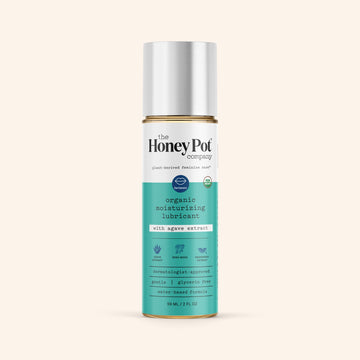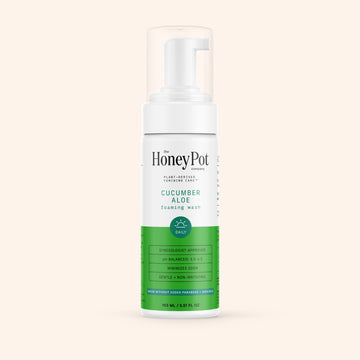The first period. Every person with a uterus will experience it at some point. However, the introduction to one’s period can come with a lot of feelings.
Some may feel excited and anticipate its arrival. Others may feel nervous and embarrassed to have to deal with it. As a parent, you may feel unsure about how to broach this conversation and introduce your growing teenager to the world of periods.
Here are some tips to have an open conversation about starting a period and introducing life as a menstruating human.
Start the conversation early
The average age that a human’s menstrual cycle starts is around 12 years old. However, for some, it can start as early as 9 or 10 years of age.
About two years before this begins, puberty changes will begin. Puberty is a time when the body begins to transition into a more mature state. Your growing child may start to develop breasts, pubic hair, and vaginal discharge during this time.
When this transition begins, this is a great time to introduce the topic of the first menstrual period, along with the other changes that come along with puberty. The sooner you prepare your child for the coming experience, the easier it will be to build their confidence and ability to handle all that goes along with a period.
Puberty can occur at different ages, so even if they haven’t started their period, their peers may have begun. This can prompt curiosity about what to expect. Encouraging open lines of communication to discuss this topic allows them to get accurate and sex-positive information about puberty and the coming menstrual period.
Erase shame and embarrassment
The human body is pretty amazing and should be celebrated. As we talk about our period, this is a great opportunity to celebrate how strong, resilient, and specially designed it is. Periods and puberty are nothing to be embarrassed about, so period talks do not have to be awkward!
When talking about the body, focus on how menstruation is a natural function that allows for health and future fertility. Breaking down stigma and shame around the period starts at home. A great way to avoid any potential shame or embarrassment is to include all members of the household, including those without a uterus.
Consider having opportunities for both parents to be present when talking about the menstrual period. It is also important to initiate these conversations even for those who will never have a period, such as siblings in the home who are starting puberty.
Eliminate myths
When starting this conversation, ask your child what they already know about periods so far. Not only will this help you understand what they have already heard, but it will help correct any wrong information during your discussion. There is so much incorrect information about the human body and menstrual cycles.
When having this conversation, stick to the facts and keep it simple. Use correct anatomical words and terminology when discussing what a period is, why it happens, and how your child may feel around that time of the month.
Your child may fear the concept of bleeding each month and may equate it to being sick or hurt. Use this opportunity to emphasize that they can do almost everything they would normally do during their period, like activities and sports.
Be hands-on when discussing period supplies together
It is helpful to come prepared for this conversation with practical tips for what to expect before and during a menstrual cycle. Bring along supplies so that your child can touch and see products they will use when their cycle starts. Help them learn how to properly use the products and dispose of them.
The Honey Pot Co’s First Period Ritual is a great menstruation starter kit. It includes both regular and overnight non-herbal pads, pantiliners, sensitive wipes, and even an on-the-go pad case.
These products are not only made with certified organic cotton but are also gentle, non-irritating, and sensitive to your child’s skin. By having this starter kit on hand, you can ensure preparedness, especially if their first period comes when away from home or their caregiver. The earlier your child feels comfortable with menstrual products, the more confident they will feel about handling their monthly cycle.
Period products have come a long way, and there is a wide array of options. Expose your child to all the various options.
This empowers them to have the knowledge they need to make the best choice. Consider planning a shopping trip to make them feel comfortable with finding their own supplies and eventually making the purchases on their own.
Empower them to handle their own period each month
The transition into having a period is a huge step into young adulthood and something to be proud of. Use your conversation about the menstrual cycle to empower your growing child to care for their body and health.
Avoid lecturing but rather encourage a dialogue about these topics. Don’t be afraid to reintroduce this topic more than once. Teach your child about tracking their period to avoid accidents and to prepare for each month’s arrival.
Finally, avoid focusing on the negative symptoms like cramping and pain. It is best to talk about ways they can get ahead of any possible symptoms.
What Are the Telltale Signs Your Child Is Nearing Their First Period?
As touched on previously, catching those early signs of puberty is your cue to gently steer into the first-period convo.
Here’s a quick checklist to spot if that monumental moment is just around the corner:
- Breast Development: A heads-up that the period playbook might need to be opened soon, usually happening a couple of years before the big debut.
- Growth Spurts: Like a sudden jump in height signaling that puberty — and periods — are knocking on the door.
- Pubic and Underarm Hair: This change usually makes its appearance a year before menstruation starts, flagging that it's almost game time.
- Vaginal Discharge:A common prelude to menstruation, this can be a practical point to start discussions about daily hygiene and what's to come.
- Mood Changes and PMS: If the emotional rollercoaster begins, it might be nature’s way of saying the first period isn’t far off.
- Bloating and Lower Back Pain: These newcomers can signal the body’s prep for the menstrual cycle to kickstart.
Spotting these signs? Time to kick off that all-important chat about periods, ensuring they're ready and reassured for this natural step in growing up.
What Menstruation Products Should You Keep On Hand?
Choosing the right menstruation products for your child’s first period is key to ensuring they feel prepared and comfortable. With a variety of options available, it’s important to find what best suits their needs and lifestyle.
Let’s explore some essentials:
Pads With Wings
Starting with pads is often the most approachable option for first-timers. They're easy to use and comfortable.
For those initial days when everything is new and comfort is key, pads like our Organic Cotton Cover Regular Pads with Wings offer a reassuring blend of absorbency and comfort. Infused with essential oils for a cooling sensation, they make navigating those first periods a bit more bearable.
Menstrual Cups
When your child is ready, introducing them to menstrual cups can be a game-changer. Menstrual cups offer a sustainable and eco-friendly alternative to tampons and pads. It’s a little leap into managing menstruation with confidence, knowing they're covered for hours on end with less waste to worry about.
Sensitive Wipes
For those moments when they need a quick refresh, our Sensitive Feminine Wipes can be a discreet and practical solution. Gentle, hypoallergenic, and designed for sensitive skin, they're perfect for a midday freshen-up, leaving no residue and ensuring comfort on the go.
A Discreet Pouch or Case
Having a small, inconspicuous pouch or case to store their menstruation products can help your child feel more at ease carrying them around, especially when they need to visit the school nurse or bathroom during the day.
Tampons
Transitioning to tampons might feel a bit scary, but it doesn't have to be. Our Organic Regular Tampons are crafted for comfort and ease, making this new step feel less intimidating and more like just another part of the routine.
Educational Resources
Equip them with a book or access to reputable online resources about women's health, the menstrual cycle, ovulation, and signs of puberty. Knowledge is power, and understanding their bodies can make a world of difference in how they navigate menstruation.
Tips for Managing Menstruation with Confidence
Ready to help your child tackle their period with confidence?
Here are some helpful tips to keep in mind:
Stay Warm, Stay Comfy
A trusty heating pad or a cuddly hot water bottle can be a significant improvement for cramp relief. Encourage your child to cuddle up with one when cramps strike. It's like a warm hug for your abdomen, easing discomfort and promoting relaxation.
Pain Relief Strategies
For those days when cramps are relentless, having a go-to pain reliever can be a lifesaver. Whether it's ibuprofen or naproxen, these can help manage pain and keep your child comfortable. Always consult with a healthcare provider to ensure it’s safe and find the right dosage for them.
Skin Care Routine
Pimples can be an annoying sidekick to the menstrual cycle. Help your child establish a gentle skincare routine to manage breakouts, emphasizing the importance of keeping their skin clean and moisturized.
Hydration Is Key
Encourage consistent water drinking to support their overall well-being and smooth out menstrual discomforts. Staying hydrated helps soften cramps and minimize bloating, making period days more comfortable.
Exercise Light and Right
Light exercise can work wonders for menstrual discomfort. Whether it's a gentle yoga session or a brisk walk, movement helps release endorphins, nature's painkillers, making those period days a bit easier to get through.
Nutrition Matters
A balanced diet can impact how one feels during their period. Encourage foods rich in omega-3, magnesium, and iron to help combat fatigue and mood swings.
Track the Cycle
Keeping tabs on the menstrual cycle can demystify a lot of the unpredictability. A simple tracking app or calendar can help predict start dates, understand cycle length, and identify patterns in symptoms.
Quality Sleep
Never underestimate the power of a good snooze — especially during the menstrual cycle. Make sure your child knows the value of rest and creating a cozy, conducive sleep environment.
Comfort Kit
Assemble a go-to kit with essentials like ibuprofen, a small heating pad, and personal care items. Having this kit on hand can offer peace of mind and give them confidence wherever they are.
Open Conversations
Keep the dialogue about menstruation open and judgment-free. This ensures your child knows they can come to you with questions or concerns, fostering a healthy attitude towards their period.
The Bottom Line
Having one’s first period is a huge step — and so is having the period talk. Learning how to approach these conversations can take the shame out of this normal transition and also empower your developing child to love the skin they are in.
When the signs of puberty start, have the period talk early and often. Don’t forget to have this conversation with all humans in the household, whether they will menstruate or not. And remember, our bodies are something to be celebrated. So, cheers to this milestone!
Want to learn more about how to prepare your child for the next phase of life? Read Talking to Your Child About Vaginal Care.
Sources:
Exercise and stress: Get moving to manage stress | Mayo Clinic
Vaginal discharge | Mayo Clinic
The Breakout Breakdown: Why You Get Acne Around Your Period | Cleveland Clinic
The role of water intake in the severity of menstrual distress | PCM






